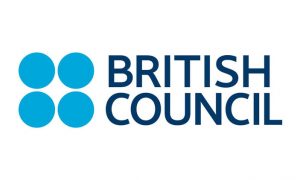

Once funded, grants are available for early-career researchers in the UK and the country hosting the workshop to attend.These grants are funded under the Newton Fund, a UK Government initiative funded by the UK Department for Business, Energy and Industrial Strategy (BEIS), together with partner funders from around the world.
The Fund aims to promote the economic development and welfare of either the partner countries or, through working with the partner country, to address the problems of low-income and vulnerable populations.
Priority areas: Partner countries may specify priority areas and will only accept applications within these. Priority areas are listed in the guidelines document.
ODA requirement: All applications must meet the required relevance to economic development or social welfare of the partner country – view guidelines for the current partner country.
Partner Countries
Brazil
Jordan
Coming Soon
China
India
Philippines
Eligibility Criteria
- Leading or Established Researchers can apply to be Principal Applicants (as defined by the EC – download information here ).
- Each proposal must have one Principal Applicant from the UK, as well as a Principal Applicant from the partner countries listed above.
- Please download and view the list of eligible UK research institutions .
Other eligibility criteria apply – for full eligibility criteria, please read the guidelines document .
Deadline
9 August 2019, 16:00 UK time
Contact
If you have any questions, please contact Alexandra Pekalski (apekalski@bournemouth.ac.uk)











 Beyond Academia: Exploring Career Options for Early Career Researchers – Online Workshop
Beyond Academia: Exploring Career Options for Early Career Researchers – Online Workshop UKCGE Recognised Research Supervision Programme: Deadline Approaching
UKCGE Recognised Research Supervision Programme: Deadline Approaching SPROUT: From Sustainable Research to Sustainable Research Lives
SPROUT: From Sustainable Research to Sustainable Research Lives BRIAN upgrade and new look
BRIAN upgrade and new look Seeing the fruits of your labour in Bangladesh
Seeing the fruits of your labour in Bangladesh ECR Funding Open Call: Research Culture & Community Grant – Apply now
ECR Funding Open Call: Research Culture & Community Grant – Apply now ECR Funding Open Call: Research Culture & Community Grant – Application Deadline Friday 12 December
ECR Funding Open Call: Research Culture & Community Grant – Application Deadline Friday 12 December MSCA Postdoctoral Fellowships 2025 Call
MSCA Postdoctoral Fellowships 2025 Call ERC Advanced Grant 2025 Webinar
ERC Advanced Grant 2025 Webinar Update on UKRO services
Update on UKRO services European research project exploring use of ‘virtual twins’ to better manage metabolic associated fatty liver disease
European research project exploring use of ‘virtual twins’ to better manage metabolic associated fatty liver disease